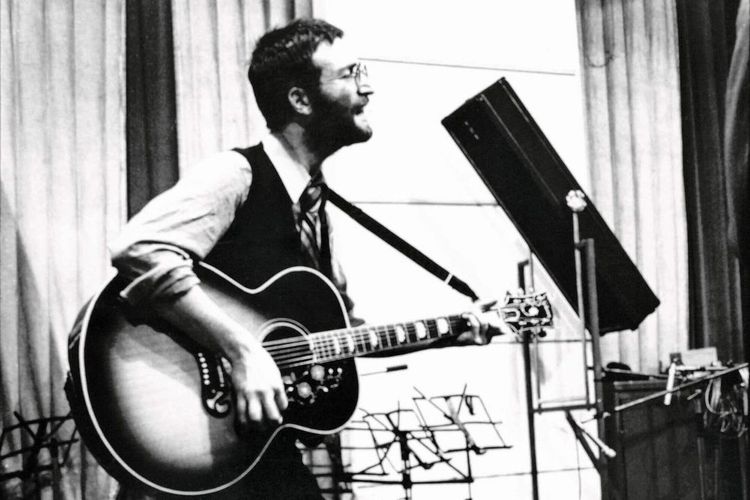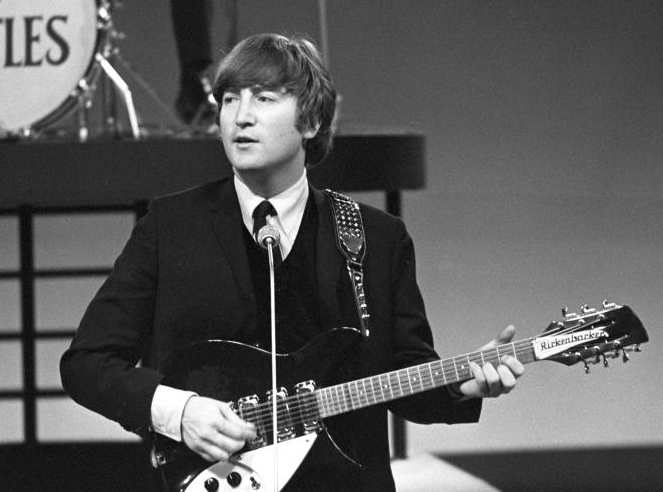In the annals of music history, few interviews have captured the essence of an artist as profoundly as Bob Harris's conversation with John Lennon in 1975. At a pivotal moment in Lennon's post-Beatles career, this candid exchange with the esteemed broadcaster offered a rare glimpse into the inner workings of a musical genius—an icon grappling with fame, creativity, and the complexities of life beyond the spotlight. As we revisit this historic interview, we uncover the insights, revelations, and enduring legacy of one of the 20th century's most influential figures.
(Watch the video below)

By 1975, nearly five years had passed since The Beatles disbanded, and John Lennon found himself navigating the unfamiliar terrain of solo stardom. Fresh off the release of his album "Rock 'n' Roll," Lennon sat down with Bob Harris for an interview that would delve deep into his psyche and creative process.
Harris, known for his incisive questions and deep understanding of music, provided the perfect platform for Lennon to explore his thoughts and feelings about his life, career, and the ever-evolving landscape of popular music.

From the outset of the interview, it was clear that Lennon was grappling with the complexities of fame and celebrity. As one of the most recognizable figures in the world, Lennon had long been a magnet for attention and adulation. Yet beneath the surface, he harbored a deep-seated ambivalence about the trappings of fame and the impact it had on his life.
"I've got a funny feeling," Lennon confessed to Harris, "that every time I say something, I'll be misquoted or somebody'll have a go at me for saying it, or somebody'll say, 'Why didn't you say it better?' or 'Why didn't you think of a better answer?'"
These words offer a poignant glimpse into Lennon's inner turmoil—a man struggling to reconcile his public persona with his private self, torn between the demands of fame and the desire for authenticity.
Despite his struggles with fame and identity, Lennon remained fiercely committed to his craft as a songwriter and musician. Throughout the interview, he offered rare insights into his creative process, shedding light on the inspiration behind his most beloved songs and albums.
Reflecting on his approach to songwriting, Lennon spoke of the importance of honesty and vulnerability in his music. "I just try and tell the truth in my songs," he explained, "and I can't help but write about what's going on in my life."
This commitment to authenticity permeated Lennon's work, endearing him to generations of fans who saw themselves reflected in his lyrics and melodies. Whether exploring themes of love, loss, or social justice, Lennon approached his songwriting with an unwavering sense of integrity, leaving an indelible mark on the world of music.

Beyond his contributions to music, Lennon was also a passionate advocate for social and political change. Throughout the interview, he spoke candidly about his activism, addressing issues ranging from war and peace to poverty and inequality.
"I think the best I can do is sing about it and hope that someone understands what I'm saying," Lennon remarked, acknowledging the power of music as a force for social consciousness and transformation.
Indeed, Lennon's commitment to using his platform for good was evident throughout his career, from his anti-war protests to his calls for unity and understanding. As he told Harris, "I believe in love and peace... I'm a pacifist, but I'm not a wimp."

As the interview drew to a close, it was clear that Lennon's influence extended far beyond the realm of music. He was more than just a songwriter or a performer—he was a cultural icon, a voice for change, and a beacon of hope in a world often mired in darkness.
Nearly five decades after his untimely death, Lennon's legacy endures, inspiring countless artists, activists, and dreamers to strive for a better world. His words and music continue to resonate with listeners of all ages, serving as a reminder of the power of art to transcend barriers and unite humanity.
In the end, Lennon's interview with Bob Harris stands as a testament to the enduring impact of his life and work—a timeless testament to the enduring power of one man's voice to change the world.


